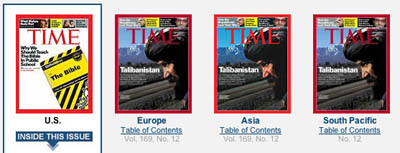
While working on his master's degree in educational leadership in 2001 , U.S. Rep. Tim Walz, D-Minn., grappled with how education about genocide had failed. History classes had, rightly, incorporated thorough study of the Holocaust, he said, but "we did such a good job of teaching it that students tended to take it as an anomaly out of history, in a bubble, and view it as something that was perpetrated by madmen and people that are insane."
Years earlier, as a high school teacher, Walz took on a "gratifying and terrifying" project with his five classes: using data about economic, ethnic and environmental contexts around the world, they tried to predict where the next genocide would occur in hopes of preventing it. Four out of five classes determined that Rwanda was the most likely site of another genocide. Three years later, in 1994, as ethnic Tutsis and their Hutu sympathizers were being executed -- more than 500,000 would eventually die -- his students called him up and asked, "Why didn’t anyone do anything? Why didn’t this government step in?"
On Sunday, Walz, U.S. Sen. Amy Klobuchar, Rep. Keith Ellison and Dr. Michael Barnett gathered with more than 500 grassroots activists at Plymouth Congregational Church in Minneapolis to ask why a
modern-day genocide continues in Sudan with little outrage — or action — by the international community. They also explored how to ensure that people in the future aren't wondering why the United States didn't put an end to a conflict that has killed 400,000 so far.
With little political will, the speakers concurred, only one thing will make a difference: widespread pressure exerted by a well-informed citizenry.
"Politicians see the light when they feel the heat," said Ellison.
The
Minnesota Interfaith Darfur Coalition assembled a panel of well-versed experts: Walz, who has a master's degree in genocide studies, co-sponsored a
bill recognizing the early 20th-century ethnic cleansing in Armenia as genocide. Ellison
co-sponsored the Darfur Accountability and Divestment Act of 2007, a measure that targets companies that invest directly or indirectly in Sudan ("If we starve the beast, it will change its behavior"). And Barnett, chair of the international studies department at the University of Minnesota's Humphrey Institute, was a United Nations delegate in the 1990s and, in 1994, a desk officer for Rwanda. (According to event organizers, all 10 of Minnesota's federal lawmakers were invited but, due to scheduling conflicts, only Democrats Ellison, Klobuchar and Walz could attend.)
Barnett spoke first, recalling a mid-1990s conversation he had with Anthony Lake, a national security adviser during the Clinton administration. When asked how to get a passive international community to take action to prevent further violence ravaging Rwanda, Lake told him, "Make some noise."
"The reason why nothing was done [in Rwanda] is we had no machinery," he said later, referring to international organizations equipped to intervene. "We always say, 'Never again,' but then when the 'again' happens, we scramble around looking for the possible posse. That’s when politics get involved. My recommendation is not simply to push on Darfur, but also to urge your elected officials to support the United Nations and other mechanisms."
Klobuchar followed, offering a to-do list of actions she thought had potential for success:
• pressing China, Russia and Arab nations to urge Sudan to allow U.N. peacekeeping troops to enter the country, a move they've long resisted;
• getting the U.N. Security Council to enforce provisions of resolution 1591 by establishing a no-fly zone over Darfur to stop offensive attacks -- and to use U.N. or U.S. fighters to "direct punitive strikes against Sudanese planes" if necessary; and
• pressuring the White House to reveal its "Plan B," still-unspecified punitive actions against against Sudan promised by the Bush administration if that country continued to bar entry to peacekeepers. The administration named a Jan. 1, 2007, deadline for compliance; no action has been taken against Sudan.
Citing a passage from the biblical book Leviticus, Klobuchar said, "Justice is our duty, and we are called to recognize the image of the divine in every human life. We must renounce inaction in the face of such enormous tragedy. We are here today because we know it is our human responsibility to not stand idly by as the blood of our neighbors continues to be shed.”
Ellison suggested that a broader group of neighbors be invited into the discussion. "We have to look at our coalition and ask ourselves, is it made up of people who look pretty much like me and people who see the world as I see it? Can we expand the coalition?" he said. "I think we should reach out aggressively to mosques and the Muslim community."
The members of Congress broadened the discussion to include pointed critiques of the Bush administration. Ellison said that the United States has a "moral imperative" to act on behalf of Darfur's civilians, but at the same time, the U.S. must restore civil rights here at home. "We need to be able to say that people detained in America have a right to habeas corpus. We have to be able to say we’re going to work hard and stop profiling based on religion and race in our country. We are going to say that America doesn’t engage in torture," he said. "So that when we go to the world community and say, 'This is wrong,' we can say it without fear of being accused of hypocrisy."
Walz echoed the sentiment, referring to a new report by China that outlines rights violations by the U.S.: "When China is now lecturing us on human rights, and they’re correct on where they’re lecturing us, that is a sad day for our nation."
Perhaps the most scathing criticism came from Barnett. He said the growing public concern for Darfur has more to do with the moral fiber of the American people than real concern by the government, which -- like China and Russia -- has its eye on Sudan's rich oil supplies. "U.S. economic and strategic interests line up with [the Sudanese government in] Khartoum," he said. "Because to go through Khartoum means you get the oil. It means you're able to deal with the terrorist networks more effectively. The fact that we've gone against our national interests, which means coddling up to Khartoum, says something about the very important moral condition that's come together on this issue."
That moral stand is the antidote to genocide, Walz suggested. In discussing his grad school research on genocide education, he concluded that students, convinced that the Holocaust was an isolated act by lunatics, fail to see what philosopher Hannah Arendt called the "banality of evil" -- the potential for complicity in atrocities by average citizens -- "that sits among us in all societies."
His call to action seemed geared both at citizens and his colleagues across the aisle. "If there are people that are talking about their faith openly, that are talking about their goodness, then hold their feet to the fire and ask them what they're doing about Darfur," he said. "Where's their willingness to stand forward? Where's their willingness to get in front of their peers, where it matters -- on the House floor. That's how things reach that tipping point, and we're right on the edge."
Part 3 of my continuing series on Darfur for Minnesota Monitor: Part 1, Part 2. Note: this article has been updated; see here for details.
 I don't know which is more horrifying--that there's blood spurting out of our sewers or the fact that the company responsible for it has a permit to do so:
I don't know which is more horrifying--that there's blood spurting out of our sewers or the fact that the company responsible for it has a permit to do so:





















